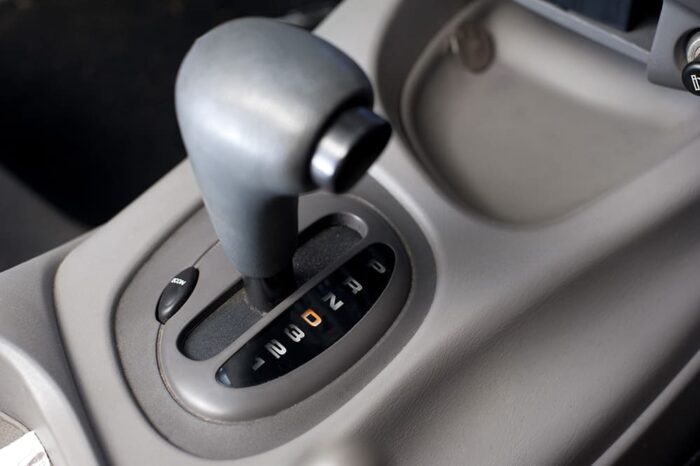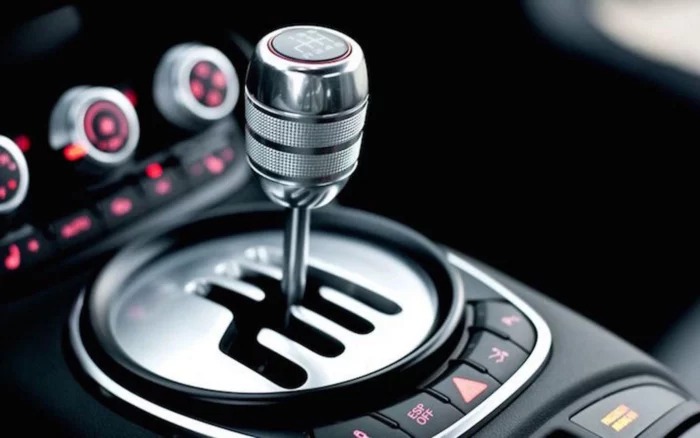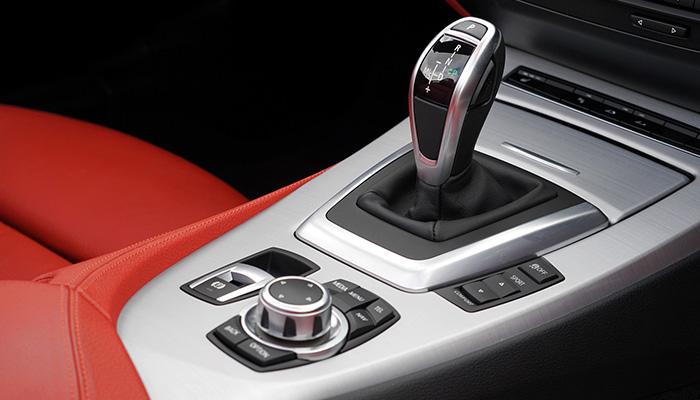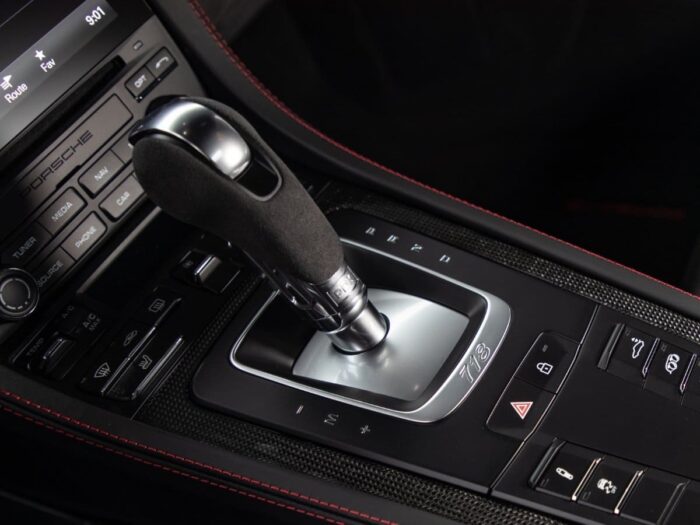The VIN is a unique set of letters and numbers, usually 17 digits, that reveals specific information about a vehicle. It shows the year, make, model, country where it was built, and engine details. You can also lookup transmissions by VIN number.
It is important to get the correct information about whether you have an automatic or a manual transmission. You can perform a transmission lookup by VIN number using a reliable free VIN decoder or other methods discussed below.
Let’s explore how to find your transmission type and why using your VIN is the best approach.
READ ALSO: What Trim is My Car By VIN?
What is the Transmission in a Car?
The transmission is a crucial component of your vehicle’s drivetrain. It transfers power from the engine to the wheels and determines how the vehicle shifts between gears to drive efficiently at various speeds. In simple terms, the transmission controls the power and allows your car to move smoothly.
Importance of Transmission Lookup by VIN
Once you locate the VIN, you can use it to identify your vehicle’s transmission. Here are some reasons why it’s essential to Lookup transmission by vin number.
Accuracy of Information
The VIN provides precise details about your car’s specifications, including the transmission type. This eliminates uncertainty and gives you the exact transmission data. You can easily access this information by using a free VIN lookup tool, which helps you identify the transmission type and other key vehicle details.
History of Replacements or Repairs
The VIN can indicate if the transmission has been replaced or repaired, offering valuable insight into the vehicle’s maintenance history. If you’re purchasing a used car, this can help you understand the history of transmission repairs, giving you more confidence in your purchase.
Matching Specifications to Needs
Understanding the transmission type allows you to ensure that the vehicle suits your driving preferences, whether you need performance, fuel efficiency, or a smooth daily commute. A VIN number check can give you the exact transmission type to make informed decisions about your car’s specifications.
Resale Value Consideration
The transmission type can significantly affect a car’s resale value. A well-maintained automatic or manual transmission may increase a vehicle’s market appeal. The VIN is essential when checking for transmission-related issues and understanding how they could impact your car’s value.
READ ALSO: The Complete List of Sensors in a Car and Its Functions
What Transmission Do I Have by VIN?
You can determine your transmission type by VIN. To do so:
- Enter the 17-digit VIN into our free VIN decoder.
- Click “Search VIN” to decode the VIN and reveal details about the transmission and other vehicle specifications.
Different Type of Transmissions
Your vehicle’s transmission plays a key role in how it operates. It determines how power from the engine reaches the wheels. Different types of transmissions serve different needs. Here’s a quick overview of the most common types.
Automatic transmissions

They shift gears for you. They provide a smooth driving experience, allowing you to focus on the road. You don’t need to manually change gears, making them ideal for daily driving and city commutes.
Manual transmissions

They require you to shift gears yourself. This type often gives drivers more control over the vehicle. It can be more engaging for those who enjoy the driving experience. Many enthusiasts prefer manual transmissions for their connection to the car.
Semi-automatic transmissions

These combine features of both automatic and manual. They allow drivers to shift gears but with less effort. This type can appeal to those who want some control without the full responsibility of a manual transmission.
Continuously Variable Transmissions (CVTs)
They don’t have fixed gears. Instead, they adjust seamlessly to provide the right power and efficiency based on your driving conditions. CVTs can help improve fuel economy and provide a smooth ride.
Dual-Clutch Transmission (DCT)

DCTs provide faster and more efficient gear shifts, utilizing two clutches for quicker transitions between gears. This results in smoother performance and better fuel efficiency than traditional automatic systems.
READ ALSO: What is a 2 axle vehicle? Everything you need to know!
Pros and Cons of Each Transmission Type
Understanding the pros and cons of each transmission type is crucial before purchasing a used car. Here’s why it’s important to know which one of the transmission types is suitable for you.
Automatic Transmission
Pros:
- Easier to Use: Ideal for beginners and convenient in stop-and-go traffic.
- Smooth Driving Experience: Modern automatics offer seamless gear shifts.
- Availability: Widely available across various vehicle models
Cons:
- Cost: Compared to cars with manual transmissions, those with automatic transmissions generally cost more.
- Fuel efficiency: Historically, automatic transmissions have been less fuel-efficient, although recent advancements have narrowed the gap.
Manual Transmission
Pros:
- Driver Control: Manual transmissions offer the driver greater control over the vehicle by providing more precise gear selection.
- Fuel Efficiency: Typically more fuel-efficient than older automatic transmissions.
- Lower Maintenance Costs: Simpler mechanics often result in reduced repair expenses.
Cons:
- Learning Curves: Require more skills to drive the car properly.
- Convenience: Can be cumbersome in heavy traffic conditions.
Continuous Variable Transmission (CVTs)
Pros:
- Fuel Efficiency: Provides optimal engine performance for better fuel economy.
- Smooth Acceleration: Provides a seamless driving experience with minimal gear shifts.
Cons:
- Driving feels: May lack the traditional driving experience that the drivers desire or look for
- Maintenance Cost: Repairs can be more expensive due to the complexity of the components.
Dual Clutch Transmissions (DCT)
Pros:
- Quick Shifting: Delivers faster gear shift among other transmission options.
- Fuel Efficiency: Combines the efficiency of a blend between manual transmission and the convenience of an automatic transmission.
Cons:
- Cost: Higher to purchase, and expensive maintenance costs
- Low Speed Performance: Can be less smooth at low speeds or in stop-and-go traffic
Other Ways to Find Transmission Type
You have several options for finding out what transmission your vehicle has. Some methods, like using an online free VIN decoder, are straightforward, while others require a bit more effort. Here are some ways to identify your transmission type.
Start with the car owner’s manual
This book usually contains all the information you need. It will specify the transmission type and how to operate it. If you don’t have a physical copy, many manufacturers provide digital versions on their websites.
Look under the hood
The engine bay might have a label that indicates the transmission type. Check for any stickers or metal plates. They often list important information about various components, including the transmission.
Driver’s side door frame
Many manufacturers place a label on the driver’s side door frame with details about the vehicle, including the transmission type. Look for a sticker that shows the build date, engine, and transmission information.
Oil Pan
The oil pan often contains information about the transmission. Look for any markings or codes that might indicate the type. While this method requires some effort, it can provide useful information.
READ ALSO: How to Check a Trailer VIN Number
Additional Tips on Car Transmission
Knowing your vehicle’s transmission type is helpful not just for driving but for maintaining your car:
- Regular Maintenance
Automatic transmissions may need fluid changes regularly to keep shifting smoothly, while manual transmissions could require clutch replacements after prolonged use.
- Used Vehicle Purchases
The transmission type is a key factor when buying a used car. It can affect the vehicle’s reliability, fuel efficiency, and resale value. Before purchasing, use the VIN decoder to verify the engine transmission type.
- Professional Inspection
If you’re uncertain about your vehicle’s transmission health, it’s a good idea to have a mechanic inspect it. A professional can check for any signs of wear or potential repairs needed.
Understanding your transmission type can help with proper vehicle maintenance, boost your driving experience, and increase the car’s resale value.
READ ALSO: Why Is My Mileage Light Flashing? (Plus a Quick Fix)
Conclusion
Finding out what transmission you have is easier than you think. You can get the information you need if you check your owner’s manual, inspect the vehicle, or use your VIN – the most reliable method.
With just a few clicks, you’ll have all the details you need about your vehicle’s transmission and specifications.
This information can enhance your driving experience and help with maintenance or repairs. If you’re buying a used car, don’t skip getting the vehicle history report to learn about the past services and maintenance that were done – this can be a game changer in determining if you will end up with a car in top condition or not.
Frequently Asked Questions
Can you lookup transmission by VIN number?
Yes, you can look up your transmission using VIN. The VIN contains encoded information about various vehicle components, including the transmission. Using our VIN check service makes this process easy. You simply enter your VIN, and the tool retrieves all relevant data. You’ll get detailed information about your vehicle, including the transmission type, engine specifications, and more. This helps you make informed decisions about repairs, maintenance, or upgrades.
What Digit in a VIN Number is the Transmission?
No single digit in a VIN directly identifies the transmission type. Instead, the VIN contains a sequence of digits that reveals details about your vehicle. The 4th to 8th characters of the VIN typically indicate the vehicle’s model, body style, and engine type. Transmission specifications often relate to the engine type. Thus, decoding these digits can give you clues about the transmission. However, it’s best to use a free VIN check tool for the most accurate information. This tool decodes all the relevant data, saving you time and effort.
Can I look up vehicle specs by VIN number?
Yes, you can look up vehicle specifications by VIN. Instant VIN Report offers a free VIN decoder tool that reveal details like the year, make, model, engine size, and other specs.
How to identify ford transmission by VIN?
Use our free Ford VIN decoder tool to reveal details about the Ford car, including the engine and transmission.











